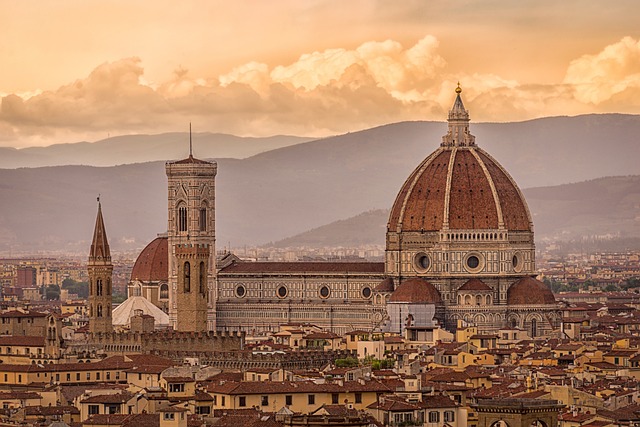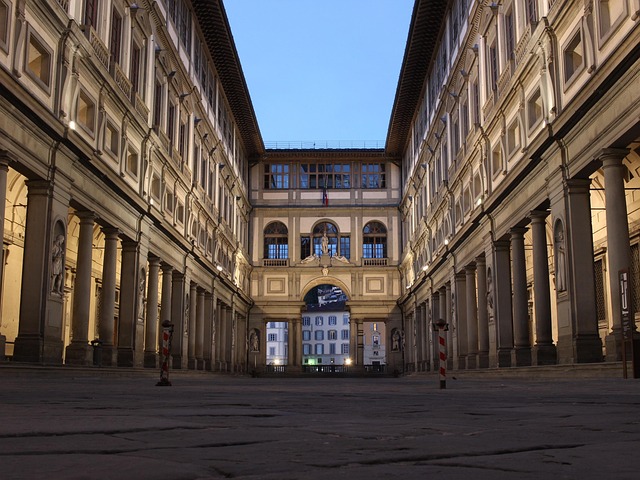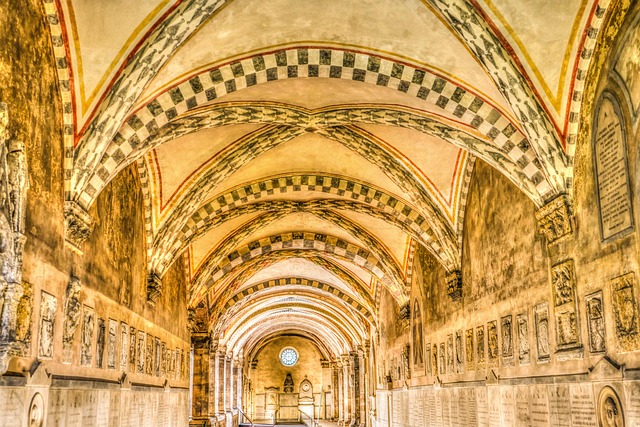Florence, Oregon's history is deeply rooted in its coastal location along the Siuslaw River, dating back millennia to Indigenous peoples. The river's importance as a transportation and trade route fueled early economic development from fishing and hunting to logging and agriculture, reflecting broader Pacific Northwest trends. Once a logging hub, Florence's cultural identity is now celebrated through historical landmarks like the Old Mill and stunning coastal views, showcasing its diverse heritage from indigenous roots to vibrant maritime past and ongoing cultural evolution.
“Discover the rich tapestry of Florence’s indigenous heritage as we explore its diverse and fascinating past. From its foundational roots dating back to Florence’s founding history, to its role as a bustling maritime center alongside the Siuslaw River, this article delves into the city’s naval significance. We trace the logging industry’s influence on its cultural evolution, highlighting iconic landmarks that define its identity. Moreover, we uncover Florence’s vibrant cultural mosaic, where traditions and arts have harmoniously thrived over centuries.”
- Florence's Founding History: Unraveling the Roots of a Vibrant Community
- The Maritime Heritage: Exploring Florence's Naval Past and the Siuslaw River's Role
- From Logging to Cultural Hub: A Journey Through Florence's Industrial Evolution
- Preserving Historical Landmarks: Iconic Sites that Define Florence's Identity
- Florence's Cultural Mosaic: A Symphony of Traditions and Arts through the Ages
Florence's Founding History: Unraveling the Roots of a Vibrant Community

Florence, Oregon, boasts a rich and complex history that has shaped its identity as a vibrant community. Settled along the banks of the Siuslaw River, this coastal town has long been a hub for human activity, with indigenous peoples calling these lands home for millennia before European exploration. The region’s maritime history is deeply intertwined with the river’s significance as a vital transportation and trade route, facilitating the exchange of goods and cultures.
As Florence evolved, its economic foundation shifted from fishing and hunting to logging and agriculture, reflecting broader historical trends in the Pacific Northwest. The city’s logging industry played a pivotal role in its development, drawing settlers and workers who contributed to the town’s cultural evolution. Today, Florence stands as a testament to this diverse heritage, with historical landmarks like the Old Mill and coastal views that pay homage to both its indigenous roots and maritime past.
The Maritime Heritage: Exploring Florence's Naval Past and the Siuslaw River's Role

Florence’s rich history is deeply intertwined with its maritime heritage, reflecting a city that once thrived as a bustling port along the Siuslaw River. Since its founding, Florence has been shaped by its connection to the sea, evolving from a small settlement into a vibrant cultural center while maintaining strong ties to its naval past. The Siuslaw River, a vital lifeline for centuries, played a pivotal role in the city’s development, facilitating trade and transportation, and sustaining the local economy through various industries.
As Florence emerged as a significant logging hub, the river became a crucial artery for transporting timber, contributing to the city’s growth and cultural evolution. Beyond its economic importance, the Siuslaw River has left an indelible mark on Florence’s identity, with numerous historical landmarks dotting the shore that tell tales of its maritime glory. Exploring these sites offers a glimpse into Florence’s diverse past, from its early days as a port to its present-day cultural tapestry, all while highlighting the enduring significance of the Siuslaw River in shaping the city’s unique character and heritage.
From Logging to Cultural Hub: A Journey Through Florence's Industrial Evolution

Florence’s journey from a small settlement to a thriving cultural hub is deeply intertwined with its industrial evolution and unique historical context. Established along the banks of the Siuslaw River, the city’s founding history is marked by its strategic location as a key maritime hub in the region. This river, a vital lifeline, not only facilitated trade but also played a significant role in shaping the town’s early economy through fishing and transportation.
The industrial landscape of Florence was predominantly defined by its logging industry during the late 19th and early 20th centuries. Massive timber operations transformed the once-abundant forests into a source of economic prosperity for the community. However, as time progressed, the city’s cultural evolution took center stage. The unique blend of maritime heritage, logging history, and natural beauty has contributed to the development of Florence as a destination rich in historical landmarks and cultural attractions, attracting visitors from around the globe.
Preserving Historical Landmarks: Iconic Sites that Define Florence's Identity

Florence’s rich history is etched into its very landscape, with each landmark telling a story of the city’s founding, maritime might, and cultural evolution. The Siuslaw River, for instance, has been a lifeblood for the region since time immemorial, shaping Florence’s identity as both a trading hub and a gateway to untapped resources. Its significance stretches back to the indigenous peoples who first called this place home, relying on it for sustenance and transportation.
Beyond the river, Florence’s historical landmarks whisper tales of its logging industry heyday, when towering redwoods were felled to fuel the city’s growth. Each preserved structure, from quaint historic homes to grand public buildings, is a testament to the resilience and ingenuity of Florence’s residents over the years. These sites not only hold architectural allure but also serve as vital threads in the tapestry of Florence’s cultural evolution, drawing visitors eager to delve into the city’s storied past.
Florence's Cultural Mosaic: A Symphony of Traditions and Arts through the Ages

Florence, nestled along the banks of the Siuslaw River, boasts a rich cultural mosaic woven through centuries of history and diverse traditions. Since its founding, the city has evolved as a symphony of cultures, with each era leaving its mark on the tapestry of Florence’s heritage. The region’s maritime past, with its fishing boats sailing the river, echoes in the vibrant art scene that continues to flourish.
The Siuslaw River, a vital lifeline, played a pivotal role in shaping Florence’s destiny. Its significance extended beyond transportation; it inspired artists and attracted settlers, contributing to the city’s cultural evolution. The logging industry also left its imprint on Florence’s history, with robust forests giving way to bustling mills and a growing population. These various facets of Florence’s past seamlessly blend into its present, creating a unique cultural landscape that celebrates both traditional arts and modern expressions.
